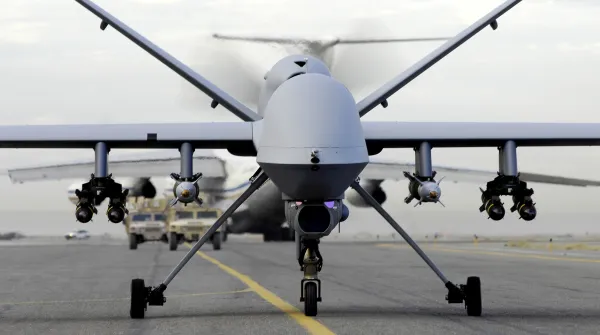For a country that prides itself on the transparency with which it governs, the United States has suffered a few too many hiccups of late. Even by the standards of many politically unfastened observers, revelations concerning the data collection behavior of the National Security Agency were enough to raise eyebrows. No matter where one comes down on the timeless debate between civil liberties and national security, transparency was forfeited in the interim. Now, due to the vigilance of UN investigator Ben Emmerson, another spotlight will be directed toward a controversial American operation: drone strikes.
In a freshly released report, Emmerson outlines a demand for the United States to make its drone program more transparent as it relates to civilian casualties. A policy carried out by the CIA, drone strikes are not known for their propensity to operate in a transparent manner. Indeed, many in the international community have called upon the U.S. to make this shift in the direction of clarity before.
When the CIA finds a permissible target, that target is marked down on a list (sometimes referred to as a ‘kill list’) and taken to the President. As soon as the President provides the necessary order, a drone strike is launched and the target is destroyed. At least, the target is sometimes destroyed. Further, these targets are rarely located in isolated settings. To the contrary, severe corollary damage is inflicted and civilians are often killed in the process. Never mind the lack of anything that resembles due process in the selection and execution of these people, civilian casualties have been a consistent critique of the drone program.
In the report, Emmerson states that preparatory information suggests that upwards of 450 civilians have been killed by drone strikes in Afghanistan, Pakistan, and Yemen. He goes on to say the United States should release all of its civilian casualty data, and that to do otherwise is unacceptable. Interestingly, Emmerson’s report also indicates that strikes in Pakistan are a violation of Pakistan’s sovereignty, since Pakistan has opposed the attacks in public. This tension, of course, is not news. Ever since President Obama assumed office and escalated drone strikes in Pakistan, while relying on the country for support in Afghanistan, the American-Pakistani relationship was murky at best.
This report, however, may not be all bad news for the Obama administration. It also refuses to condemn the practice of drone strikes on the whole. Instead, the report pronounces that drone strikes can coexist with humanitarian law. Though this certainly deflates the sails of many on the left who would rather see an end to the drone strike operation altogether, the Administration seems to have an opportunity here to move into the mainstream of the international community.
Transparency need not be considered a relic of the past. In large part, the international community has agreed that governments must be transparent where needless civilian casualties are involved. In recent years the United States has not only taken opportunities to weigh in on this salient matter, but it has come down on the wrong side. In this recent report, light will be shed upon the Obama Administration and steps may be taken as a result, in one direction or another.



